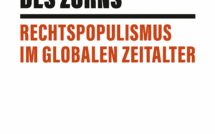

In this section of Campus, EuropeNow features a selection of scholarly articles and books on topics pertinent to the teaching of Europe or teaching in Europe that were published within the last 5 years. This dynamic bibliography, with monthly installments, seeks to highlight both pedagogy research as well as critical analyses of debates taking place in higher education in and about Europe.
If you are interested in reviewing any of the books featured in any of our Campus Round-Ups, please contact our Research and Pedagogy Chair, Hélène Ducros, at helene@alumni.unc.edu
1. Becoming Europeans: the relationship between student exchanges in higher education, European citizenship and a sense of European identity
By Christof Van Mol
Since the initiation of the Erasmus program in 1987, intra-European student exchanges in higher education are expected to promote a sense of European identity and citizenship among European exchange students. Panel studies grasping students’ identification before and after participating in an exchange program, however, remain remarkably scarce today. Moreover, the few existing studies report conflicting results. This paper adds to this debate, presenting the results of a survey conducted in 2009 and 2010 among non-exchange and exchange students from thirteen European countries, based on a pretest—posttest nonequivalent groups design (n = 400). My analyses did not find any statistically significant differences over time within and between the groups of exchange and non-exchange students, and neither between students with similar identification scores at wave 1. Finally, an analysis of the relationship between social network types and identification patterns did also not yield any significant results. Altogether, these findings suggest the impact of European exchange programs on European citizenship and a sense of European identity is relatively limited.
Article available in Innovation: The European Journal of Social Science Research here
2. Policy development for English-medium instruction in French universities
By Marianne Blattès
In July 2013, Article 2 of the Fioraso Law was passed, legalizing English-medium instruction (EMI) in French universities. This controversial measure immediately sparked passionate debates in the National Assembly and the media. While on the surface this announcement signifies a historical shift in French language policy, a closer analysis of the policy formation signals a more complex picture. In an attempt to understand policy not as a politico-linguistic object but as a process and site of struggle, this paper focuses on how the parliamentary debates have been recontextualised in the drafting process of the law. The aim is to highlight the sensitive issues and major topics surrounding the EMI debate and trace the textual transformations of the law. This study focuses on four different versions of the Fioraso Law and the parliamentary debates. Drawing on the Discourse-Historical Approach (DHA), the author examines the extent to which the parliamentary debates influenced and shaped the language policy text. An analysis of the multiple revisions of the policy reveals marked differences between the initial draft of 2012 and the final version in 2013. The amendments show that certain key issues from the parliamentary discussions have been taken into account, notably concerns about the perceived threat of EMI on Francophonie. However, the textual transformations indicate greater resistance towards EMI than was actually the case in the parliamentary debates.
Article available in the European Journal of Language Policy here
3. British Universities in the Brexit Moment: Political, Economic and Cultural Implications
By Mike Finn
This timely book provides an invaluable analysis of the impact the Brexit decision has had, and will have, on Britain’s universities. International by nature, British universities draw their students and staff from across the global community. Britain is a major beneficiary of EU-sponsored research funding through the Horizon 2020 scheme and partnerships as part of the European Research Area. Britain’s universities have world-leading reputations, with the UK sector second only to the United States in international prestige. Brexit has—already—affected this, with a drop in student recruitment from abroad and an increase in EU academics electing to leave the British university system. British Universities in the Brexit Moment offers the first book-length treatment of these issues. It situates the ‘Brexit question’ in the context of prevailing developments in UK higher education such as marketization and provides an indispensable guide to the material impacts of Brexit on Britain’s universities.
Book available from Emerald Publishing Limit here
4. Does intergenerational educational mobility shape the well-being of young Europeans? Evidence from the European Social Survey
By Bettina Schuck and Nadia Steiber
In Using pooled European Social Survey data (Rounds 4–7, 2008–2014), we investigate the relationship between intergenerational educational mobility and subjective well-being (SWB) for young Europeans (N = 16,050 individuals aged 25–34 from 18 countries). Previous research has been struggling with inconclusive results due to the methodological challenge of disentangling the independent (i.e., “net”) effect of social mobility over and above the effects of social origin and destination. We contribute to this line of research by contrasting mobility effects estimated in a conventional linear regression framework with net mobility effects estimated by (non-linear) diagonal mobility models (DMM). We show how model selection influences estimates of mobility effects and how different specifications lead to radically different findings. Using DMM, we estimate how intergenerational educational mobility affects the SWB of young Europeans, differentiating between downward and upward mobility and different country groups. Our results suggest that status loss/gain across generations affects young adults’ SWB in addition to the level-effect of ending up in a lower/higher status position only in Continental Europe.
Article available in Social Indicators Research here
5. Responding to “crisis”: Education policy research in Europe
By Nafsika Alexiadou
This paper discusses the significance of international and transnational developments for education policy research, with a focus on the European Union. The rise of policy projects at the EU level since 2000, has altered the relationships between the state, EU institutions and education policy, in terms of the definition of values, purposes, and mechanisms of education change, in what is often referred to as the europeanization of education policy and governance. In a time of financial crisis and extensive population migrations to and within the European space, the paper argues for further critical research on the EU institutions and their relationship to national education systems, as well as on the social justice dimensions and implications of considering both national and EU sites of policy for addressing young and vulnerable peoples’ education and social futures.
Article available from Research in Education here
Published on June 3, 2020.




